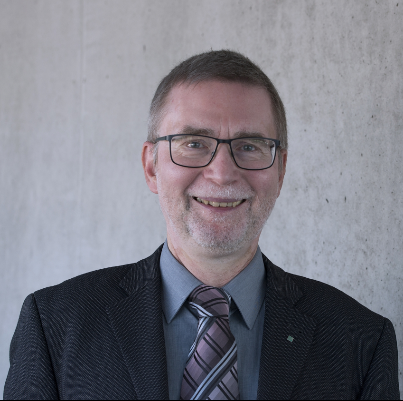Soft and Stretchable Sensor Technology Based on Electroactive Polymers
by Holger Böse
Dr. Fraunhofer Institute for Silicate Research ISC
Center Smart Materials and Adaptive Systems (CeSMA)
Neunerplatz 2, 97082 Würzburg, Germany
Abstract
Mechanical sensors for the measurement of forces and deformations play an important role in many technical systems. Such sensors are commonly hard and rigid and can measure high forces in a stiff environment. However, if the environment is soft and flexible such as the human body, other kinds of sensors are required. Here, a relatively new class of soft sensors, which are based on electroactive polymers or more specifically dielectric elastomers, is introduced. The sensors are designed like electrical capacitors and comprise non-conductive and conductive elastomer components. These components consist of silicone elastomers, where the electrodes contain conductive particles. When the capacitor is deformed, the change of its capacitance is monitored. The composition only with elastomers makes the sensors extremely soft, flexible and even stretchable. From this basic principle, numerous sensor designs for the measurement of different quantities can be derived. The most simple design of an elastomer film with alternating non-conductive and conductive silicone layers gives a strain sensor with a stretchability of more than 100 %. However, when applying more sophisticated designs of the components, other types of sensors for the measurement of pressure or pressure distributions with high sensitivity are feasible. This broad variability of the sensor design opens the way for a large number of applications, which range from the monitoring of deformable machine elements via the surveillance of the pressure distribution on seats to the measurement of contact forces when grasping an object manually with a glove or by a robot gripper. Another relevant application field of the soft sensors are human-machine interfaces, where the user can control a technical function by tuning the pressure strength of his finger. The talk gives an overview on the soft and stretchable sensor technology and possible applications.

Biography (Holger Böse)
Holger Böse is Chief Scientist and Deputy Head of the Center Smart Materials and Adaptive Systems (CeSMA) at the Fraunhofer Institute ISC in Würzburg, Germany. After the study of Physics, he received a PhD in Physical Chemistry at the University of Hamburg in 1989. Since 1990 he has been working at the Fraunhofer Institute ISC on disperse materials and analytical methods. Starting in 2002, he established a competence team in the institute for the research on smart materials. He has authored or co-authored about 100 papers and more than 25 patent applications. His current research interests include smart soft materials such as controllable fluids and elastomers, associated sensor and actuator technologies as well as their applications in automotive, medicine, wearables and haptics.

